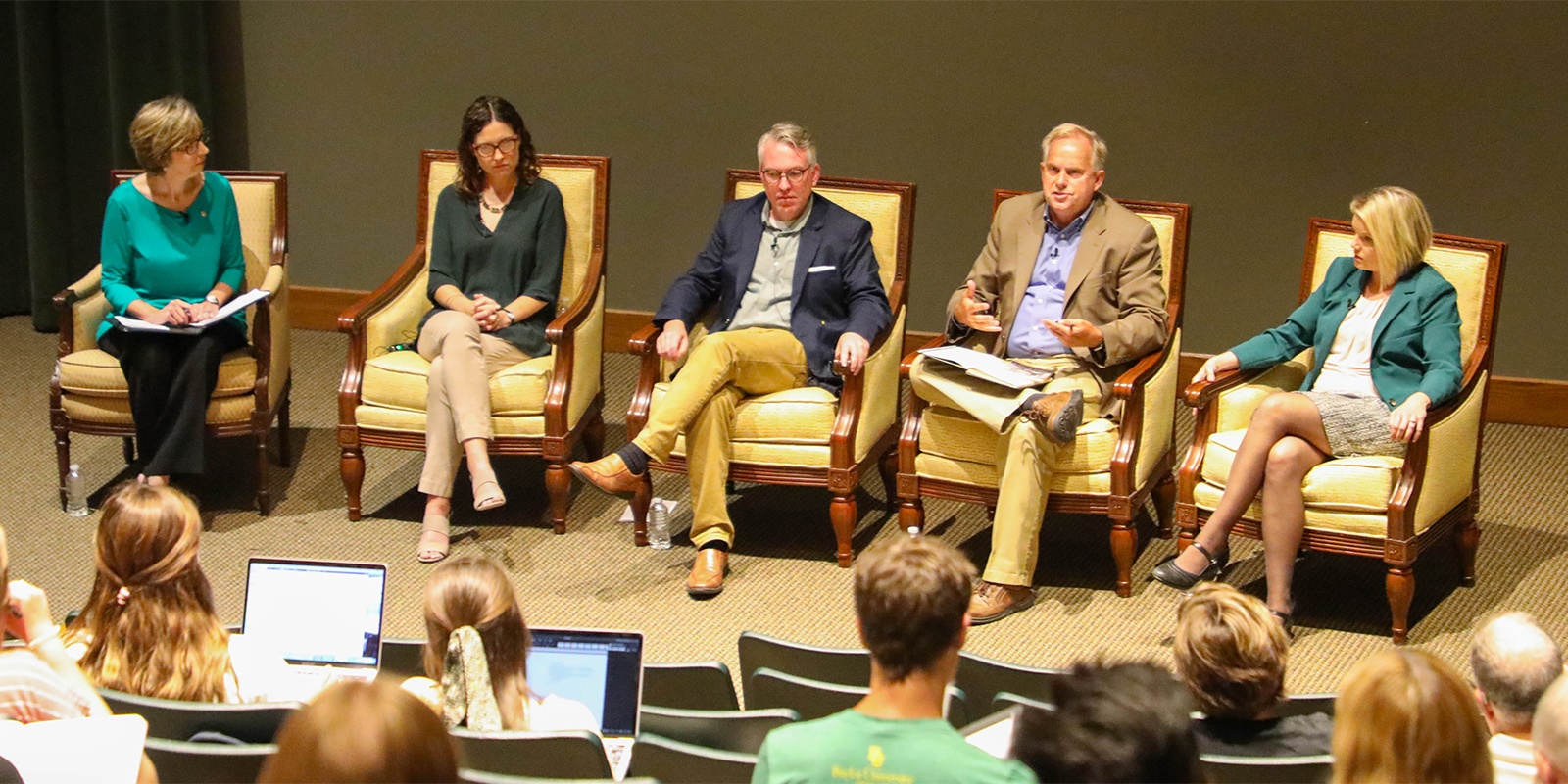This year’s Baylor Conversation Series focused on improving civil discourse

During her first two years as Baylor’s president, Dr. Linda Livingstone made it a priority to carry the Baylor message out to cities across the country in what was dubbed the “Baylor Conversation Series.” At each stop, she chatted with Baylor faculty, administrators and Regents about the state of the university and its future plans; you can still watch or listen to many of those events online (here and here).
This year, in response to current events across the nation, the Conversation Series has tweaked its focus to discussing ways we can improve our ability to communicate with one another across idealogical boundaries — ways to get pass the “us vs. them” approach that seems to dominate traditional and social media.
The first of those events was held Monday on campus, as four Baylor professors — Dr. Elesha Coffman (history), Dr. David Corey (political science), Dr. Greg Garrett (English) and Dr. Leslie Hahner (communication) — discussed how we, as Christians, can encourage a more civil discourse in conversations on difficult or sensitive subjects.
Garrett discussed how we, as a society, seem to have built walls around our beliefs, believing that we are “right” and “good” while those on the other side are “wrong” and even “evil.” But… “All of us are beloved children of god,” Garrett reminded the audience. “The people on the outside of our walls are no less beloved than I am.”
When it comes to civil discourse, Corey suggested “charitable disagreement” might be a better term. “There are times where civility might need to be set aside,” he explained. “But charity is always appropriate… It’s a requirement of charity that we take people seriously enough to try and understand what they see.”
[LISTEN to the Faculty Panel on Civil Discourse]
Hahner called a “radical humility” when it comes to difficult conversations. “The best communication practices aren’t to persuade someone to your side,” she said, “but to open yourself to that engagement with the possibility that you might be radically changed by that encounter. … The goal is not to get people to your side, but to truly listen and humble yourself before other people so you can engage with them on the best kind of ground.”
Coffman noted that views on issues can change over time, citing as an example how many of our nation’s Founding Fathers spoke eloquently on freedom while also keeping people in slavery. “You don’t have to accept or reject positions wholesale,” she said. “You can look at the different pieces that are put together.” She also urged the audience to keep in mind that, like the Founding Fathers, “some part of what we believe now will eventually be judged… None of us is perfect.”
Three other presidential events are scheduled this fall as part of the Baylor Conversation Series: faculty-led roundtables with student leaders (Oct. 16), a lecture by two Biola University professors on “Christian Influence in a Post-Christian World” (Oct. 28), and a dialogue between idealogical odd couple Robert George and Cornel West (Nov. 15). A long series of other events are also being hosted across campus by schools, colleges and departments throughout the year; you can find those (plus a list of faculty-recommended readings on civil discourse) on the Conversation Series website.
Sic ’em (in a civil manner), Bears!
[photo via The Baylor Lariat]

